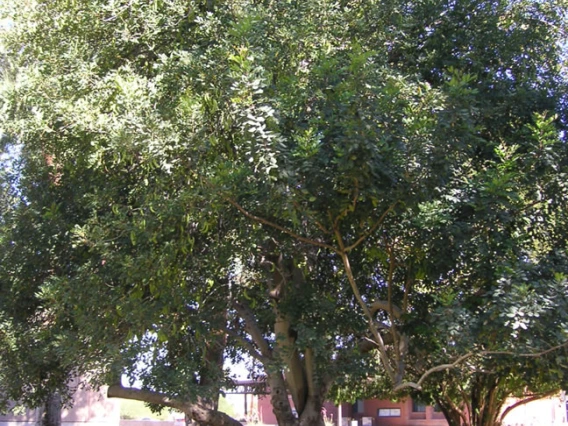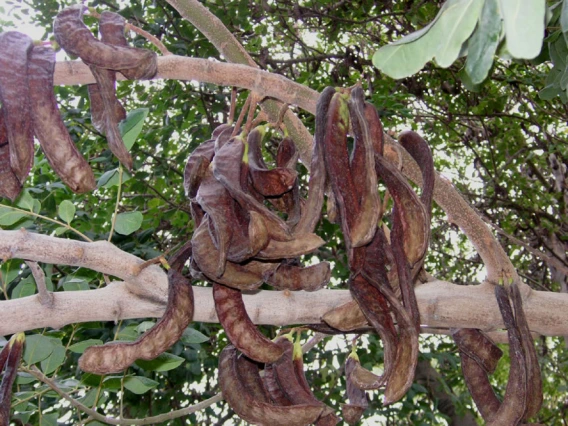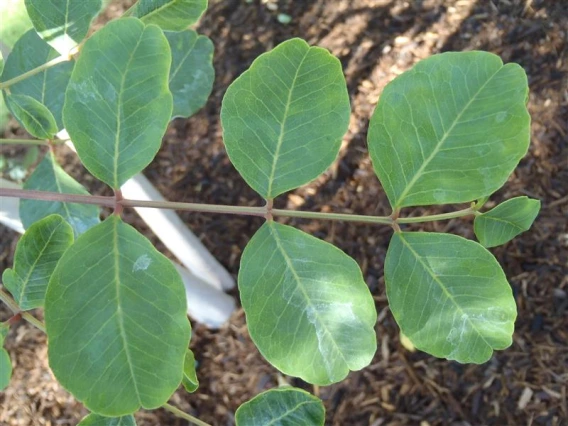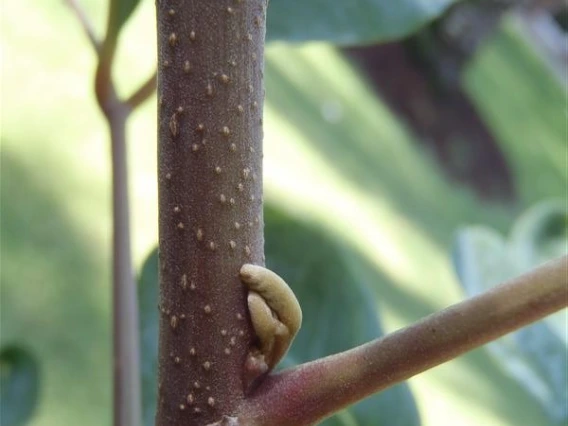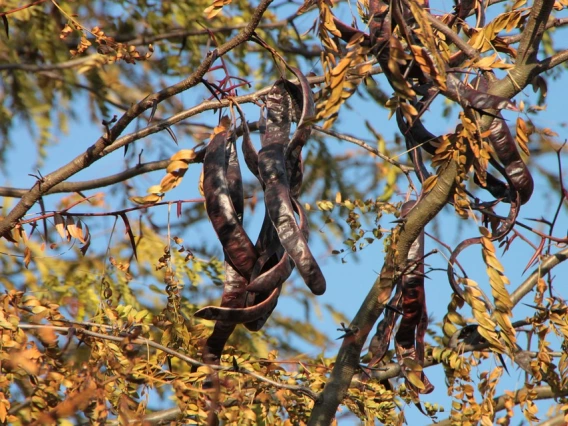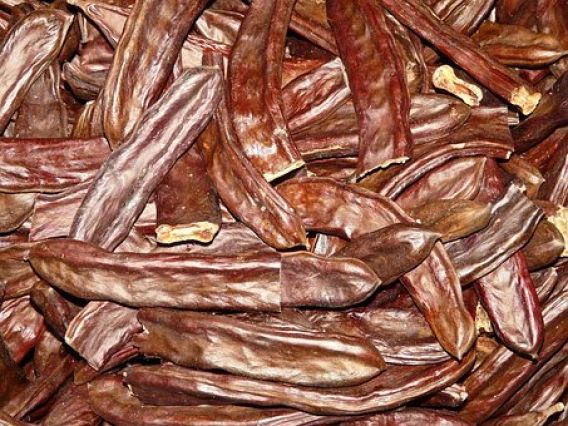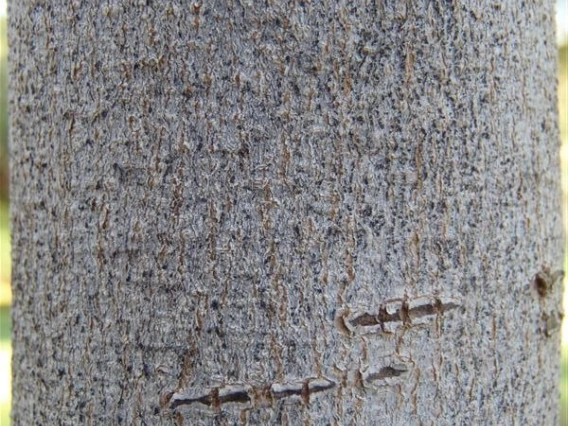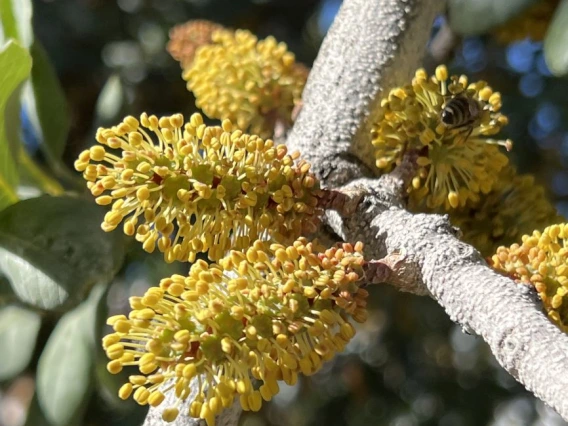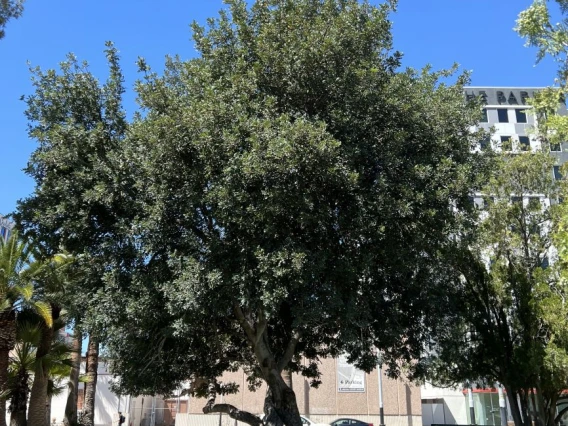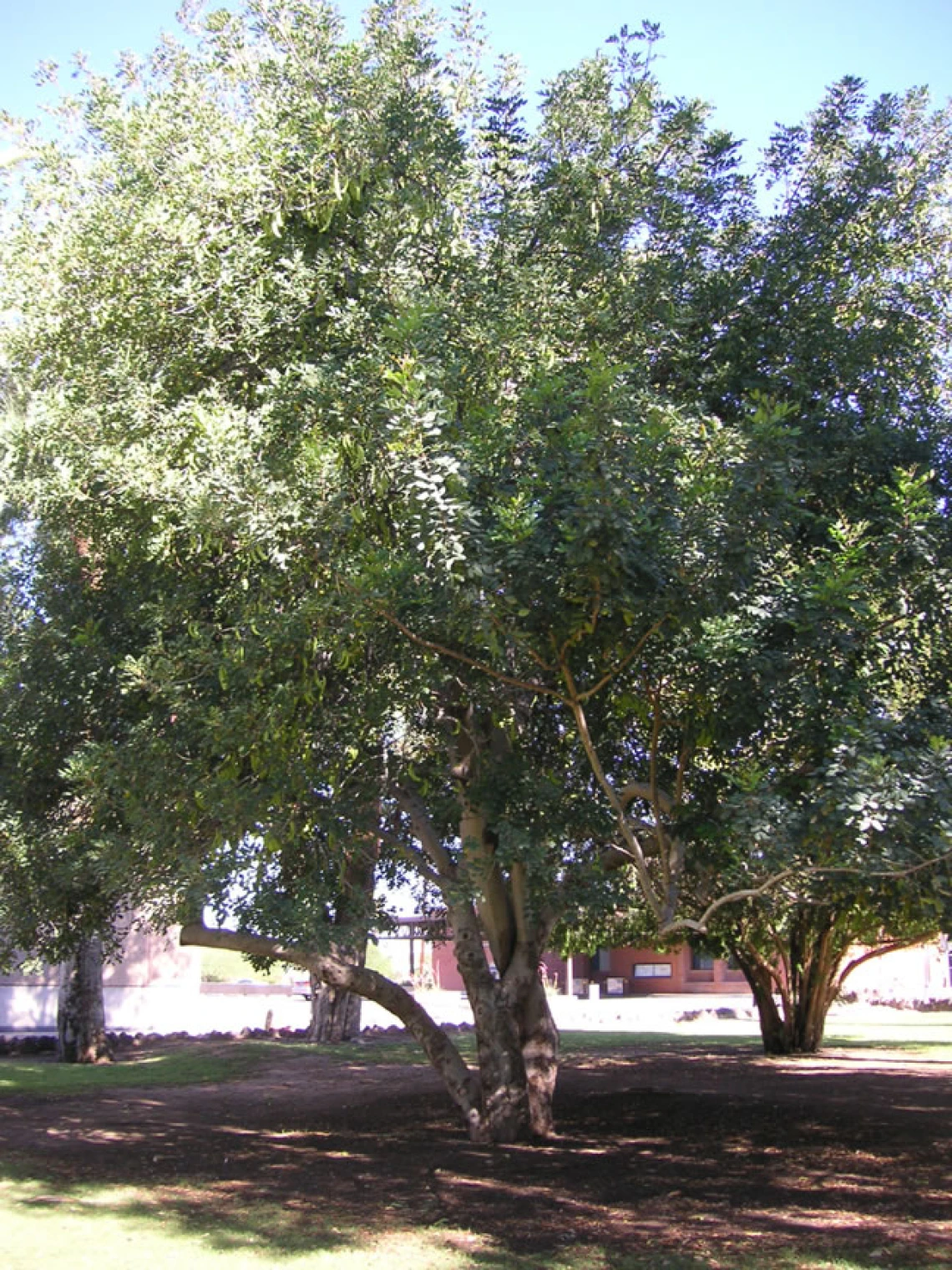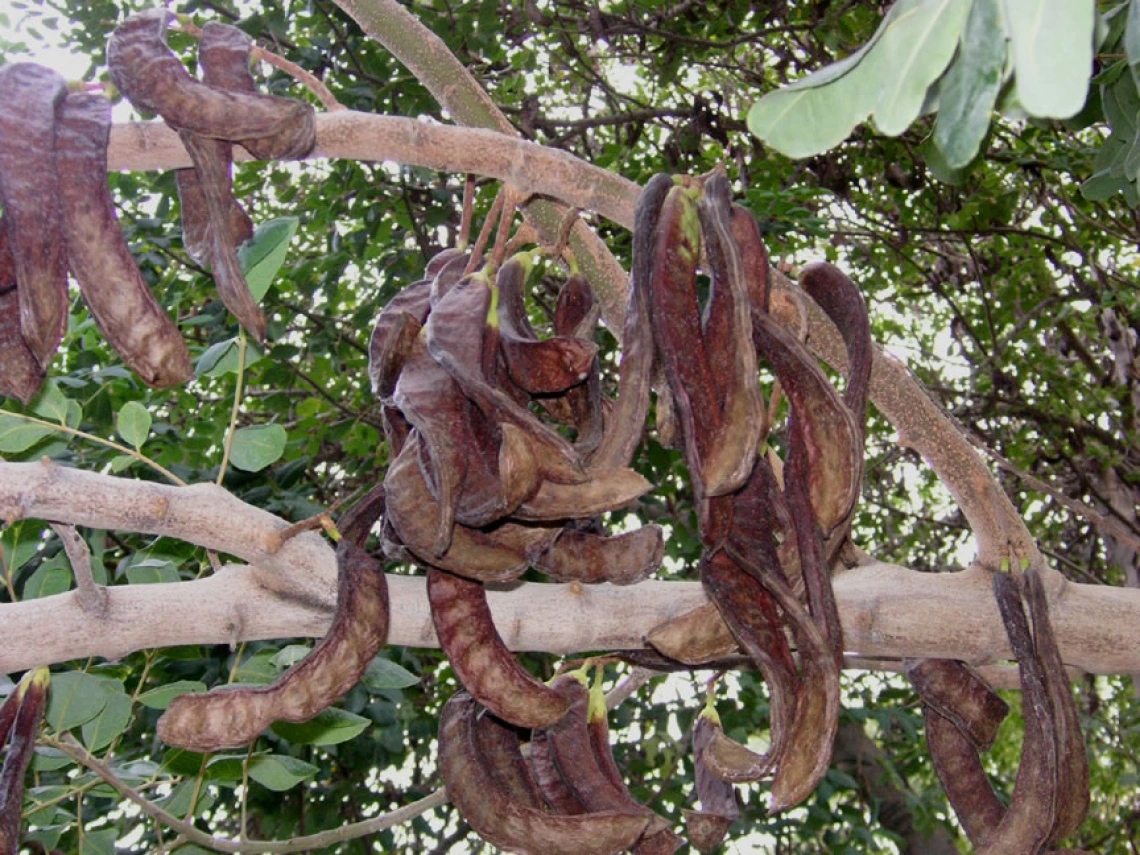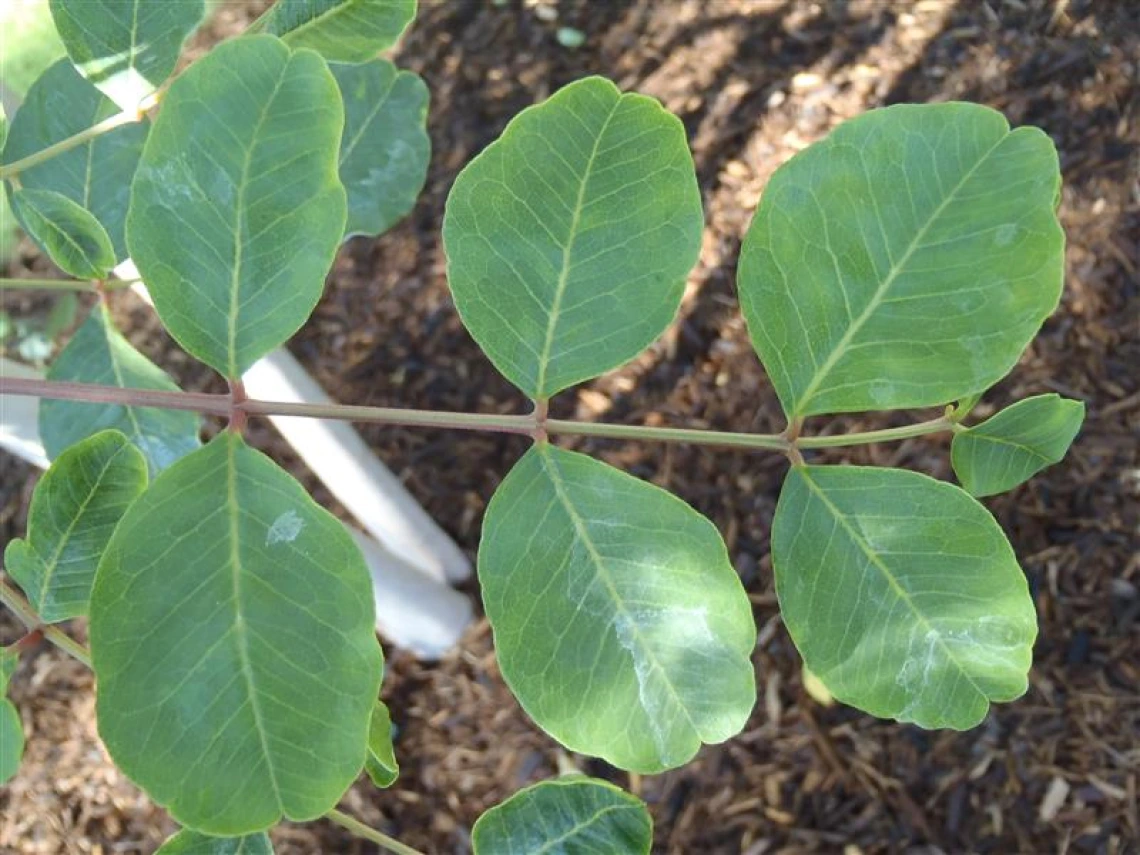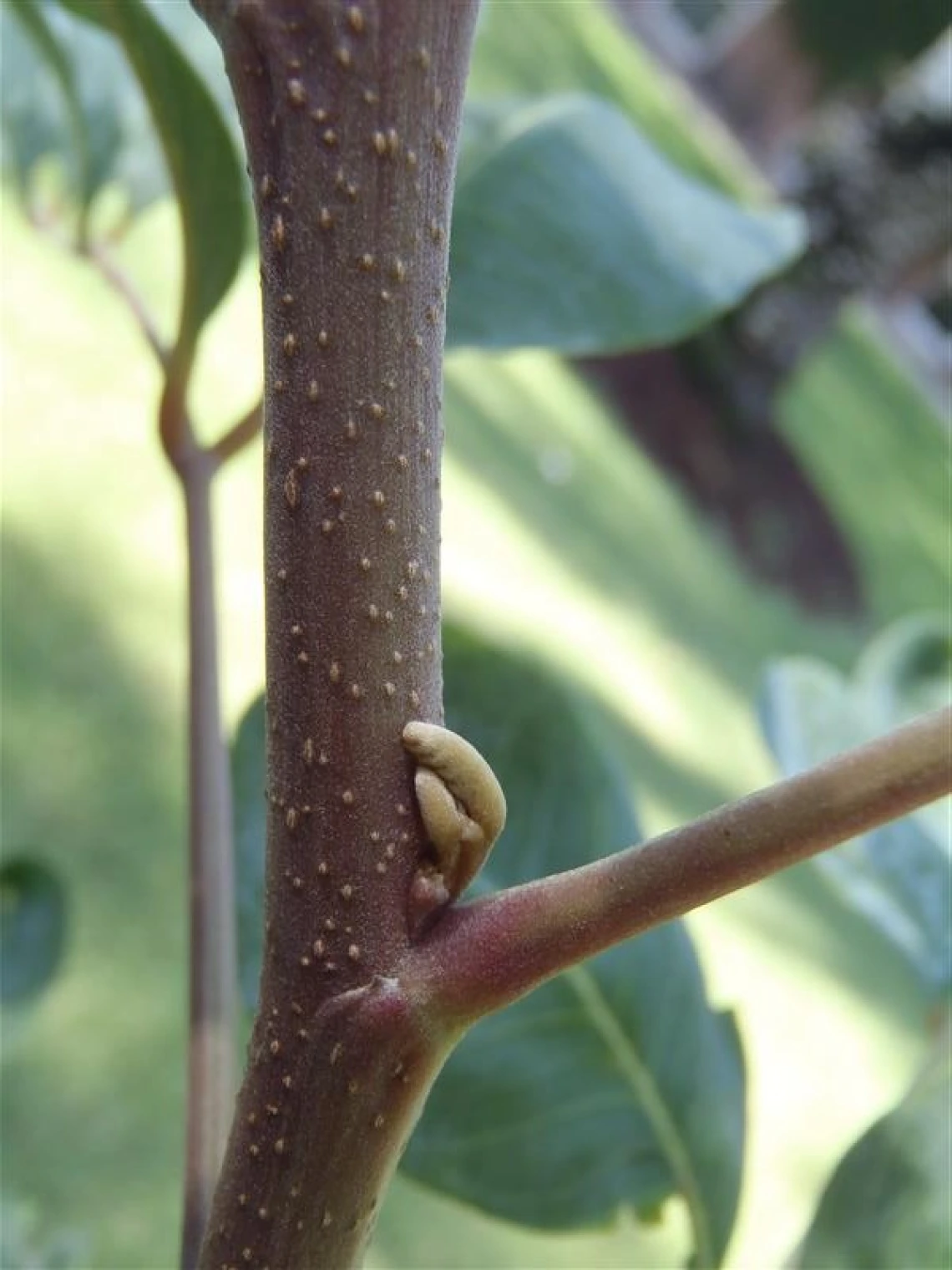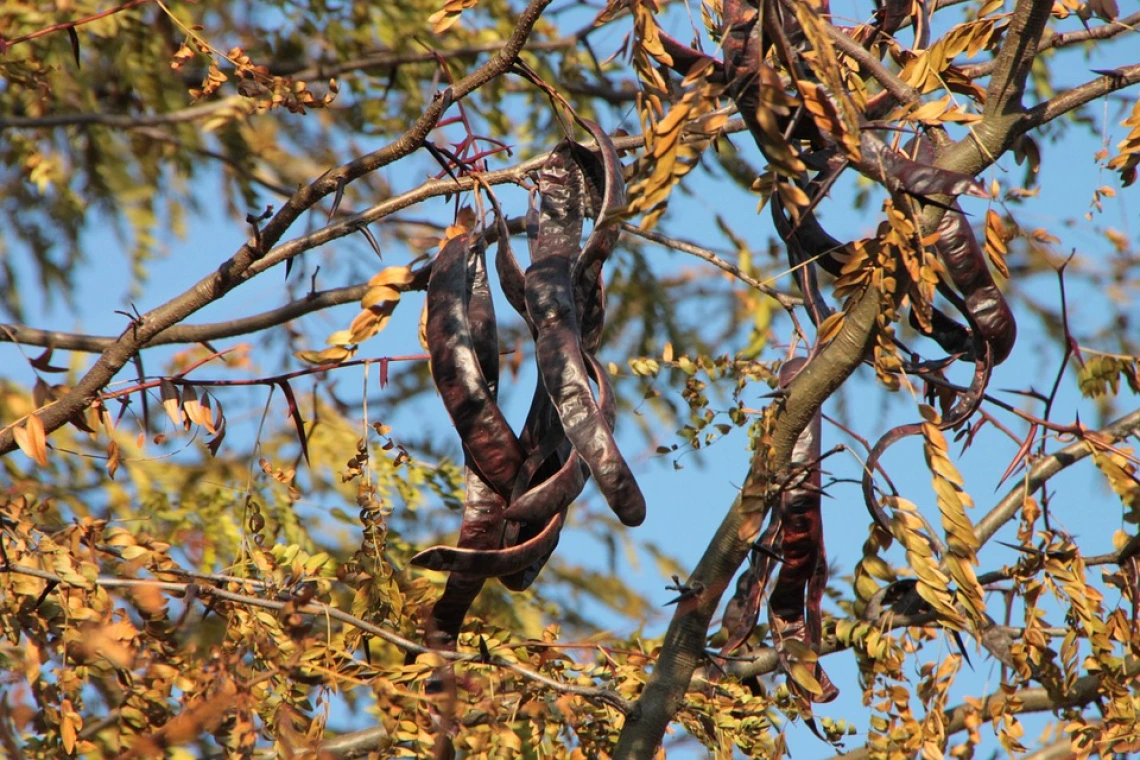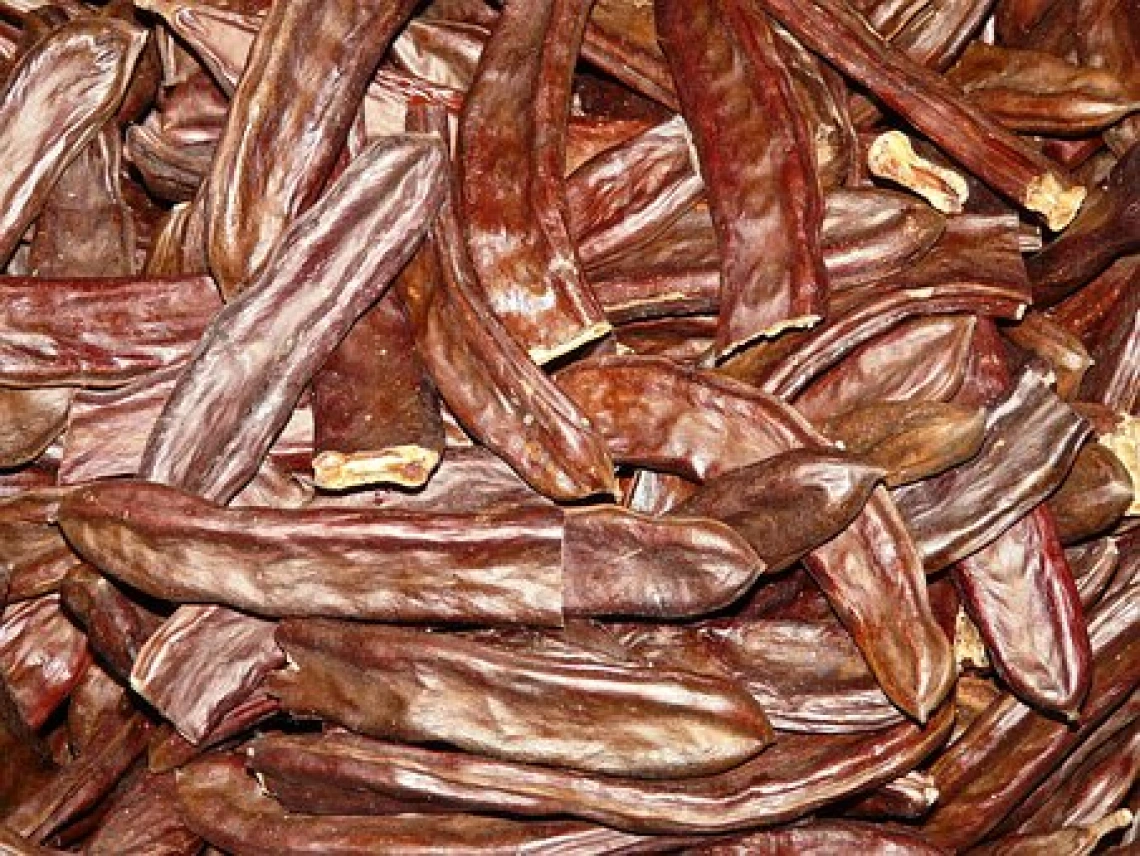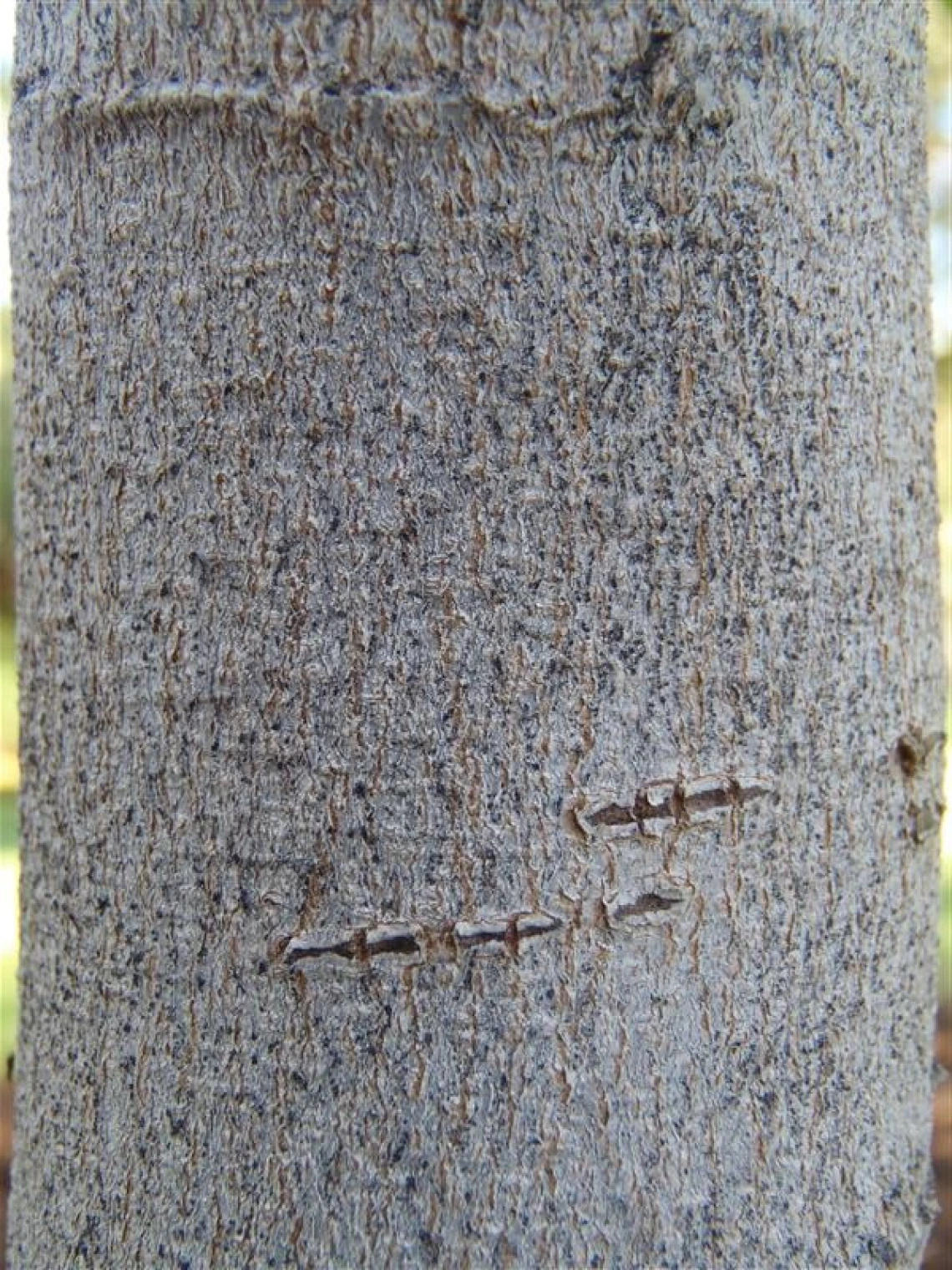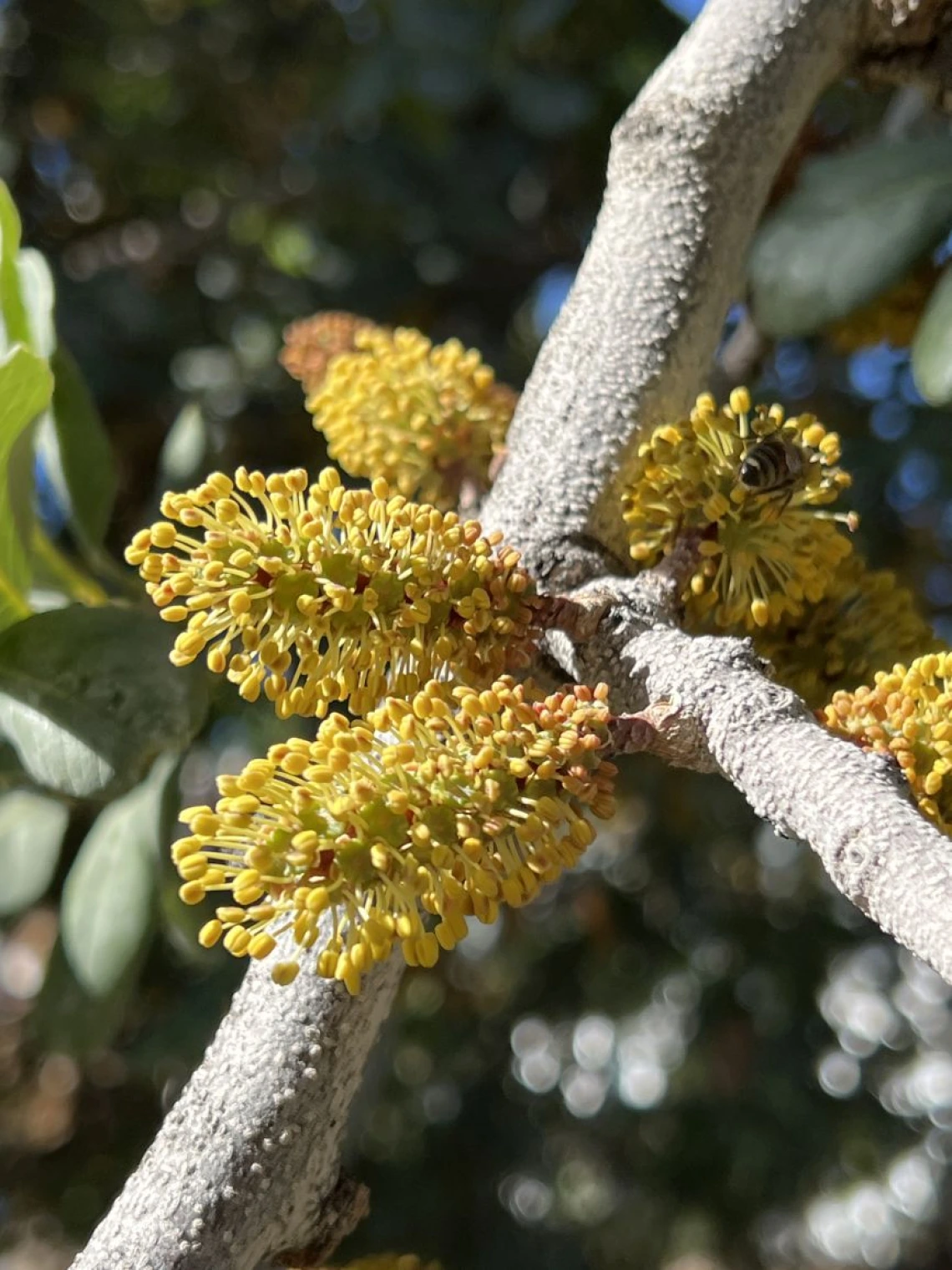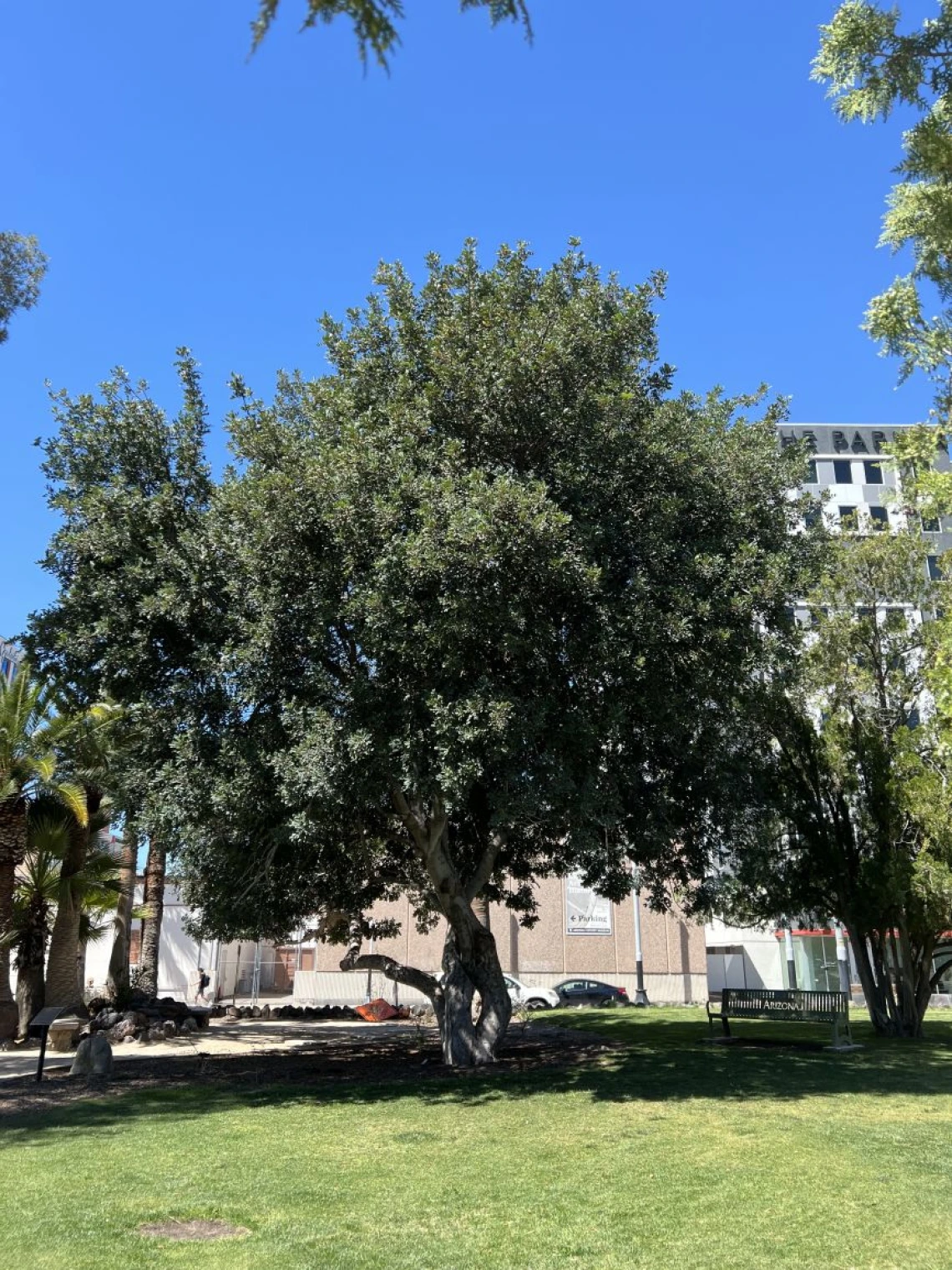Edible Landscapes Virtual Tour
Ceratonia siliqua | Fabaceae | carob
Edible Characteristics:
This common chocolate substitute, Ceratonia siliqua is another Mediterranean native grown here on campus. Fallen pods can be gathered under female trees. Seedpods are filled with a sweet pulp and can be eaten both green and dried. A flour is made from them which is 60% protein.
Health Benefits:
Carobs are used as a nutritious and low fat alternative to cocoa-derived chocolate. The bean is also used for many different therapeutic treatments. The vitamin E in the carobs also help with healing colds, flus, and osteoclasis. Carobs have high levels of both phosphorus and calcium, which promote bone strength, helping to prevent osteoporosis. Singers have been known to chew on carob husks to enhance clarity in their voice by treating the throat.


